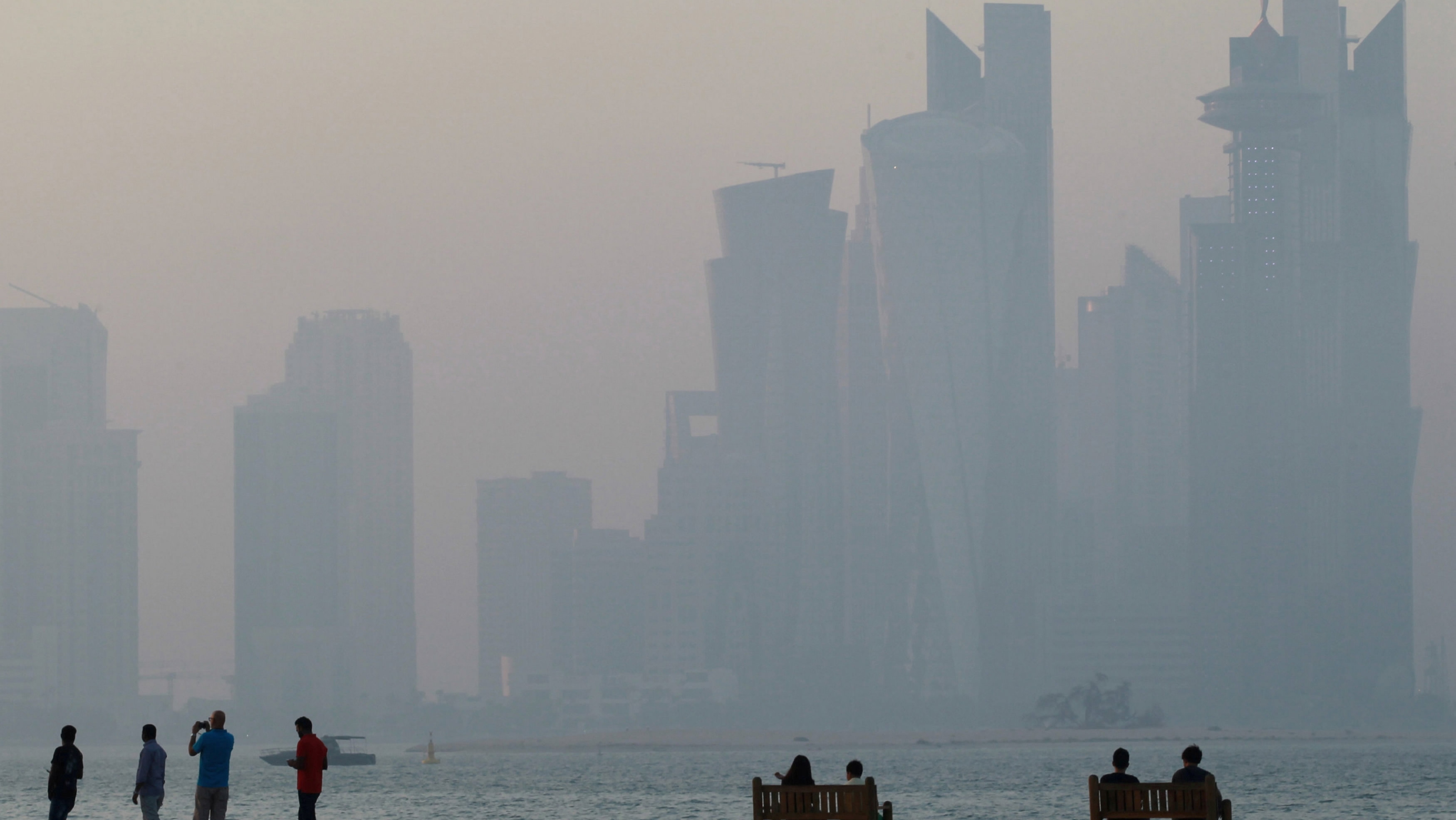The situation in the Gulf area seems to be inching towards a boiling point, and scorching summer temperatures are not to blame.
The region has been gripped by soaring diplomatic tensions after Saudi Arabia, the United Arab Emirates, Bahrain and Egypt severed ties with Qatar, halted air and sea traffic and imposed an economic blockade on the tiny peninsula, alleging it is supporting terrorism. Qatar rejected the claims and hit back at the bloc, accusing the countries of exerting force on it to "outsource" its foreign policy, which previously raised eyebrows for failing to align with Riyadh's stances.
The war of words between the two sides turned on Sunday into words about war after Riyadh alleged that Doha has made "a declaration of war" against it.
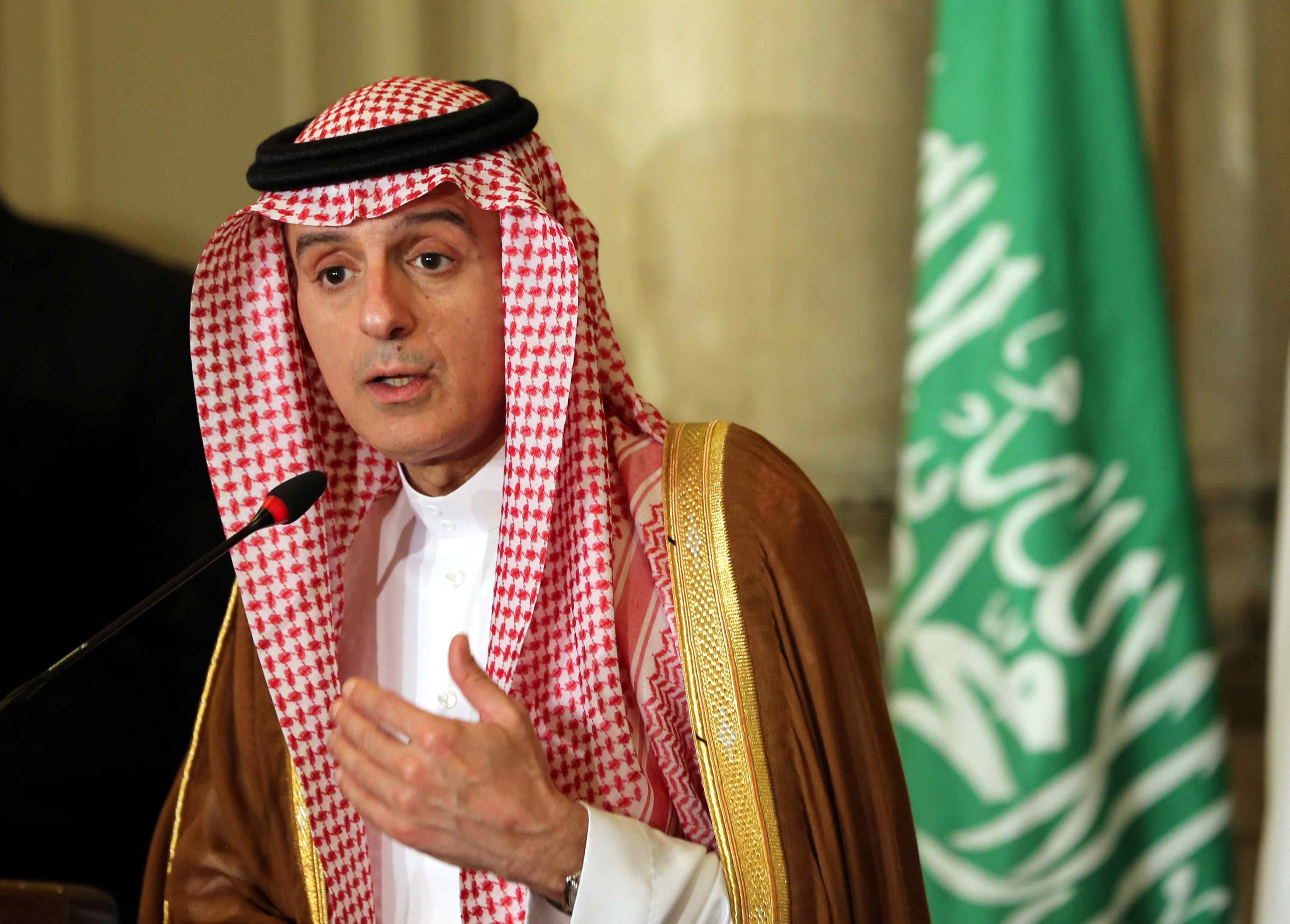
Saudi Foreign Minister Adel al-Jubeir attends a press conference after a meeting to discuss the diplomatic situation among Arab countries and Qatar, in Cairo, Egypt on July 5, 2017. /Reuters Photo
Saudi Foreign Minister Adel al-Jubeir attends a press conference after a meeting to discuss the diplomatic situation among Arab countries and Qatar, in Cairo, Egypt on July 5, 2017. /Reuters Photo
Saudi-owned broadcaster Al-Arabiya reported that Saudi Foreign Minister Adel al-Jubeir slammed what he said was Qatar's demand for the internationalization of the Muslim hajj pilgrimage as "aggressive and a declaration of war against the kingdom".
"We reserve the right to respond to anyone who is working on the internationalization of the holy sites," he was quoted as saying.
Doha rushed to deny that such a request was ever made, blasting its neighbor for fabricating stories and disseminating "false information".
Manama meeting
Al-Jubeir's comments came on the same day the foreign ministers of the quartet met in the Bahraini capital Manama. They issued a stern statement in which the countries conditioned any possibility of dialogue with full compliance from Doha with a list of 13 demands they presented last month. This appeared to be a row-back on their earlier willingness to ditch the requirements if Doha stuck to six broad principles.
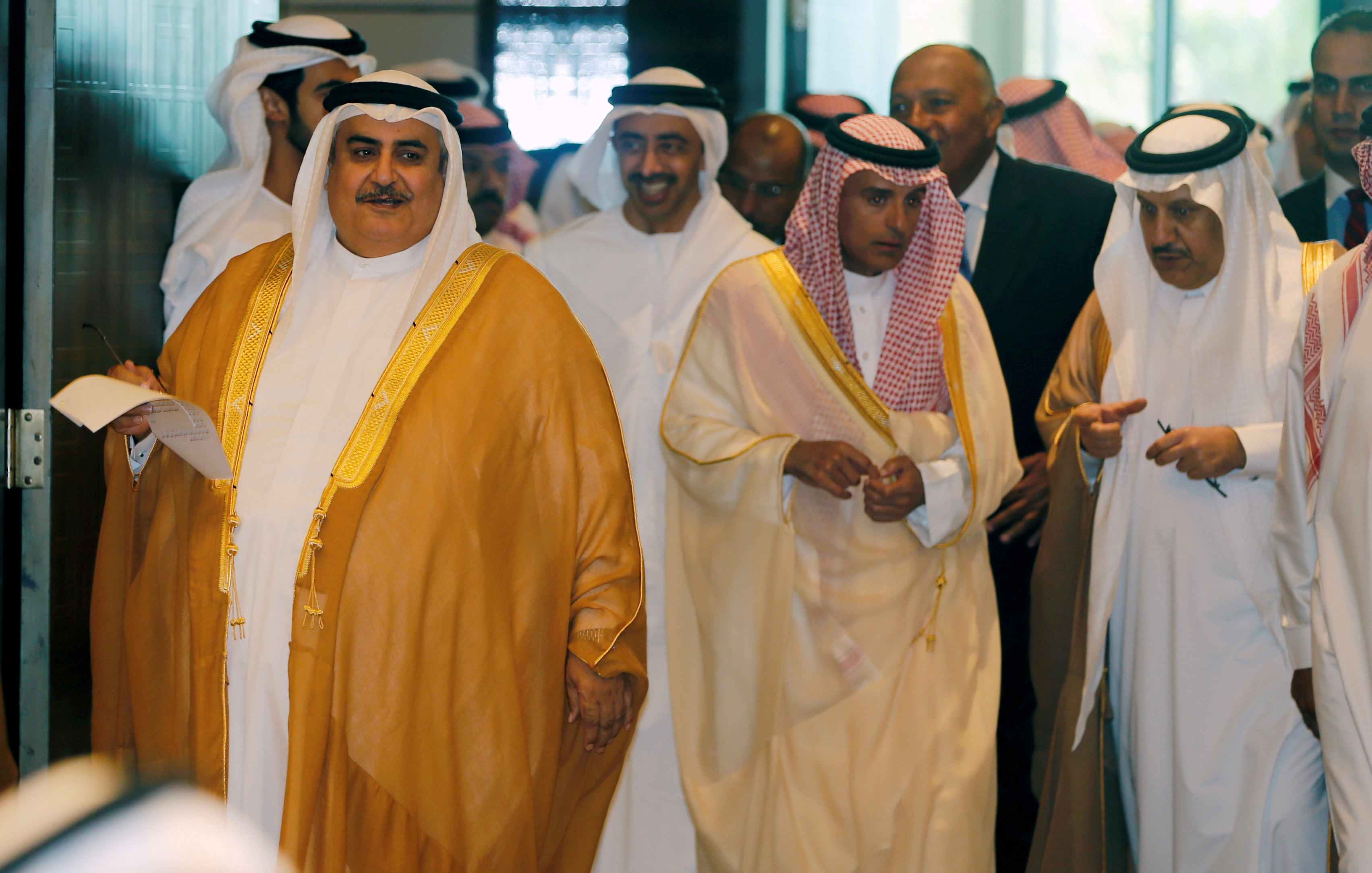
Bahraini Foreign Minister Sheik Khalid bin Ahmed Al Khalifa (L) walks into a joint press conference after the foreign ministers of Saudi Arabia, Bahrain, the United Arab Emirates and Egypt met to discuss their dispute with Qatar, in Manama, Bahrain on July 30, 2017. /Reuters Photo
Bahraini Foreign Minister Sheik Khalid bin Ahmed Al Khalifa (L) walks into a joint press conference after the foreign ministers of Saudi Arabia, Bahrain, the United Arab Emirates and Egypt met to discuss their dispute with Qatar, in Manama, Bahrain on July 30, 2017. /Reuters Photo
When the ultimatum was first issued on June 22, Qatar labeled it "unreasonable" with its lawyers noting that the conditions were "reminiscent of the extreme and punitive conduct of 'bully' states that have historically resulted in war."
On Monday, Qatari Foreign Minister Sheikh Mohammed bin Abdulrahman Al Thani dismissed the announcement of the four countries, calling it "a stubborn policy".
Kuwait has been trying to mediate between the two sides with the hope of defusing the tension diplomatically. However, no breakthrough has been achieved so far, and if Sunday's series of statements is of any indication, reconciliation is all but a mirage for the moment.
With the row turning into a protracted standoff and the blame game intensifying, analysts are holding the belief that the risk of an armed conflict is becoming all too real – and al-Jubair's latest comments don't seem to be appeasing such concerns.
Game of alliances
The impracticality of the 13 demands, which are now back on the table, are at the heart of observers' views that the current crisis could slip into a military confrontation. Doha said the list was "made to be rejected", giving fodder to questions, including from the US Department of State, about the true intentions behind the dispute.
Allegations of nurturing terrorism are but a façade for Riyadh's real objective of asserting dominance on its tiny neighbor with the aim of a regime change, analysts have argued.
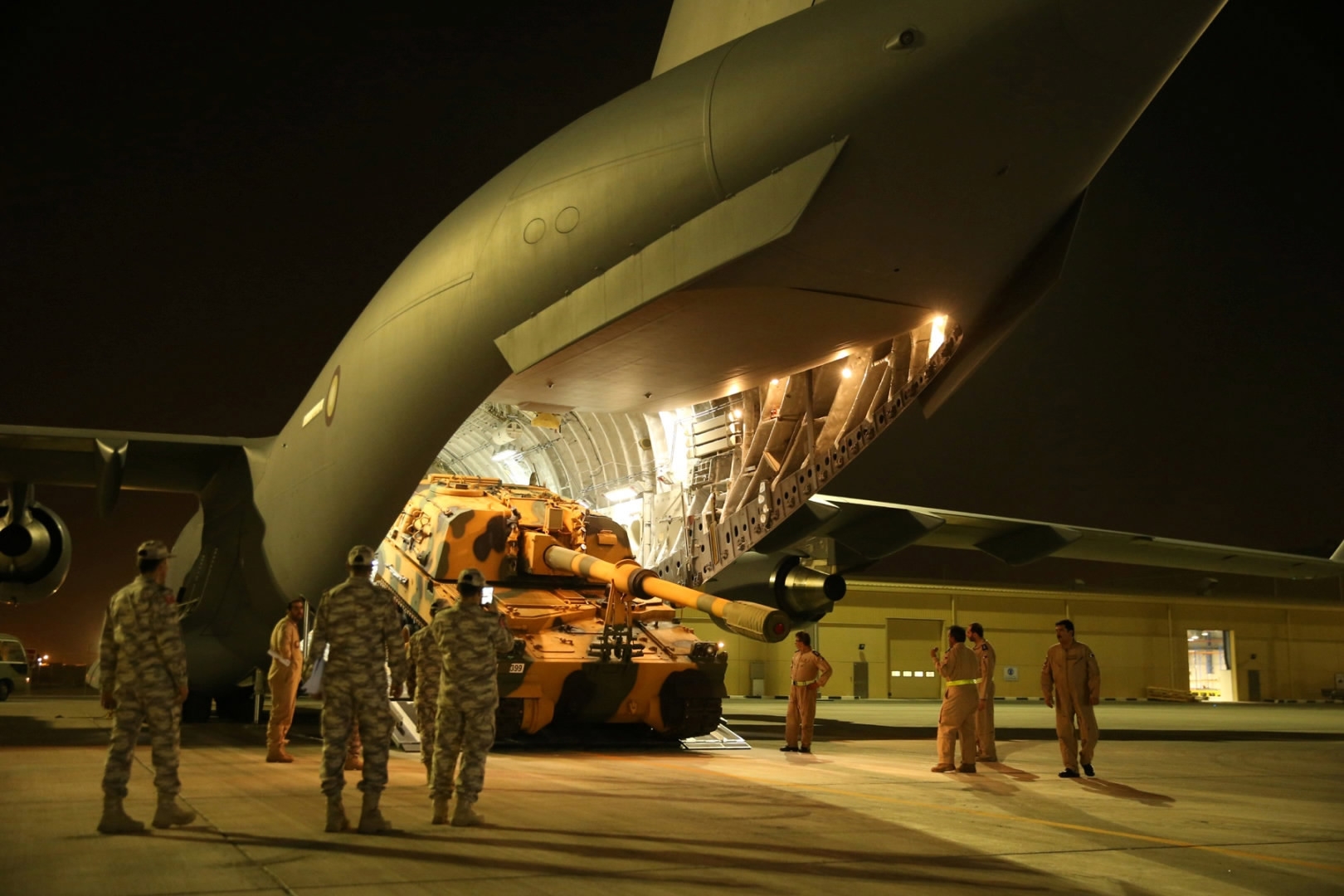
A tank arrives with a contingent of Turkish troops at their military base in Doha, Qatar on July 18, 2017. /Reuters Photo
A tank arrives with a contingent of Turkish troops at their military base in Doha, Qatar on July 18, 2017. /Reuters Photo
The quartet has asked Qatar to scale back its diplomatic ties with Iran, the arch enemy of Saudi Arabia, close a Turkish military base and shutter the Al Jazeera media network. Doha responded by welcoming more Turkish troops to the military facility and leaning on Iran for food imports.
The requirements imposed by the Saudi-led bloc have the potential of changing the strategic alliances of Qatar, especially towards Iran, which could further upset Saudi Arabia taking into consideration the religious and ethnic rivalry of the two nations.
US not a stakeholder?
The mixed messages coming from the White House and the Pentagon have made Washington peripheral to the efforts of reaching a resolution in the Qatari crisis, and undermined its possibility of influencing an enraged Riyadh.
President Donald Trump was quick to join Saudi Arabia in criticizing Qatar over its alleged ties to terrorism, going as far as claiming credit over the regional move to isolate Doha. Meanwhile, the State and Defense Departments adopted a more neutral tone.

Saudi Crown Prince Mohammed bin Salman meets with US Secretary of State Rex Tillerson in Jeddah, Saudi Arabia on July 12, 2017. /Reuters Photo
Saudi Crown Prince Mohammed bin Salman meets with US Secretary of State Rex Tillerson in Jeddah, Saudi Arabia on July 12, 2017. /Reuters Photo
Trump later backpedaled on his initial statement and called for dialogue; however, that seems to have fallen on deaf ears among the ruling circle in the kingdom.
US Secretary of State Rex Tillerson had called on the Saudis to come up with "reasonable and actionable" proposals, only for galling requirements to be produced to Qatar. His shuttle diplomacy efforts earlier this month also failed to break the impasse.
The prince's new powers
The standoff between Qatar and Saudi Arabia might not benefit from the appointment of Mohammed bin Salman as Crown Prince in June just a few weeks after the row came to existence. The sudden rise of the 31-year-old is seen as a prelude to more hawkish foreign policies for Riyadh as his tenure as minister of defense would attest.
He led Saudi Arabia into Yemen in 2015 to fight Houthi militants, who have the backup of Iran. Two years on, the bloodshed continues and Riyadh has shown no sign of taking a step back despite a deluge of reports about its warplanes targeting civilians.
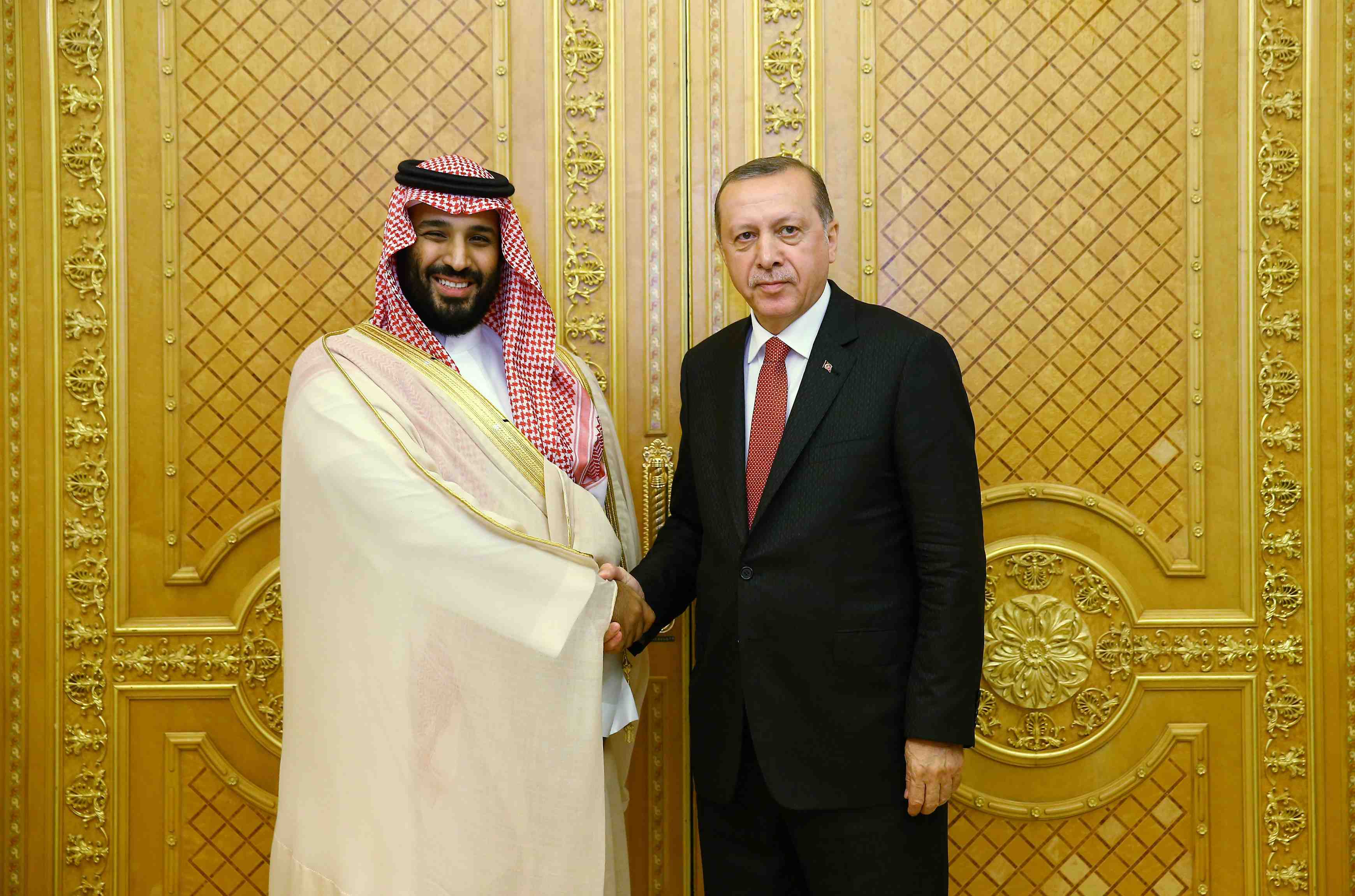
Turkish President Recep Tayyip Erdogan (R) meets with Saudi Arabia's Crown Prince Mohammed bin Salman (L) in Jeddah, Saudi Arabia on July 23, 2017. /Reuters Photo
Turkish President Recep Tayyip Erdogan (R) meets with Saudi Arabia's Crown Prince Mohammed bin Salman (L) in Jeddah, Saudi Arabia on July 23, 2017. /Reuters Photo
His elevation as first-in-line to the throne has been seen as bad news for the Qatari crisis with analysts expecting Mohammed bin Salman to consolidate his power in the same fashion as when he was appointed a minister of defense.
Joe Lauria writing for Consortiumnews, a web-based investigative news magazine, gave the example of "Saddam Hussein who invaded Iran a year after he came to power to shore up his authority, with US support that time too."
Seven weeks into the standoff, the two parties are still at loggerheads and the world is still on tenterhooks to see how events will play out. Since the parting of ways on June 5, the rift has significantly deepened and the rhetoric hardened as possibilities of a political resolution, it seems, weakened.

